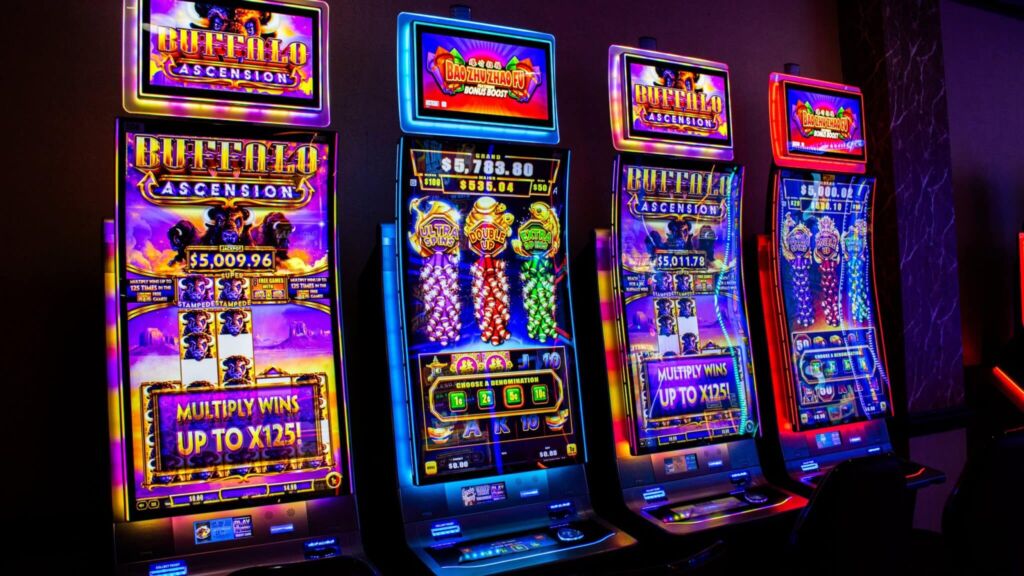Big data is swiftly transforming many industries, including the casino gaming field, altering the landscape of game development and global player engagement.
A Deep Dive into Big Data Applications in the Casino Sphere
Within casinos, big data involves gathering extensive player-related insights from diverse channels, covering a variety of interaction aspects such as:
- Gaming Behavior: Details like preferred games, play frequency, session lengths, and usual betting amounts.
- Transaction History: Patterns in deposits, withdrawals, claimed promotions, and spending conduct.
- Demographic Data: Information on players' age, gender, geographical locations, and language choices.
- Device and Platform Usage: Insights on device types (desktop, mobile, tablet) and preferred systems (websites, apps).
- Customer Service Interactions: Documentation of inquiries, complaints, and feedback through support channels.
- Marketing Interactions: Analysis of responses to marketing campaigns, email interactions, and ads engagement.
When properly analyzed, this rich data store gives profound insights into customer behaviors and trends, helping gaming businesses convert data into strategies that improve game frameworks, personalize user experiences, and strategically plan business trajectories. Handling such expansive datasets effectively is essential for maintaining a competitive edge and meeting the changing needs of today's gambling enthusiasts.
The Influence of Big Data in Developing Games
More than a trendy term, big data is a cornerstone in the casino industry, heavily impacting game design phases. Here's how it plays a pivotal part:
Data-Driven Game Design
Game creators leverage big data analytics to shift from relying on gut feelings to making design decisions based on empirical evidence. By reviewing current game interactions, they can discern which elements are engaging and which aren’t. If, for instance, specific bonus rounds are favored, or players lose interest at a particular stage, this data helps in crafting captivating new games poised to engage and keep players. This continuous feedback allows for refining game mechanics and aesthetics, aligning them with the target audience's desires.
Tailoring and Customizing Player Experiences
Big data has drastically improved the ability to customize gaming experiences. By examining individual player data, casinos and developers can adjust game features to align with specific preferences, resulting in experiences like:
- Dynamic Game Difficulty: Modifying difficulty based on a player's skills and gaming history to sustain interest without causing irritation or boredom.
- Personalized Recommendations: Guiding players towards games matching their previous activities and favored themes.
- Tailored Bonuses: Providing special offers resonating with a player's gaming patterns, encouraging higher engagement rates.
- Adaptive Interfaces: Altering game settings like betting caps and visual themes to cater to individual profiles.
Customizing game elements significantly boosts player satisfaction and loyalty, allowing players to feel like the games were made with their preferences in mind. This tailored experience strengthens the bond between players and the gaming platform.
Using Predictive Analytics in Game Refinement
Through predictive analytics enabled by big data, developers can anticipate future trends, understand user behaviors, and refine games across various dimensions. This process encompasses:
- Predicting Game Success: Evaluating the success potential of new games using market insights and user preferences.
- Assessing Risk of Player Departure: Recognizing behaviors that suggest players might stop playing, allowing for timely intervention.
- Adjusting Payouts and Odds: Regularly fine-tuning ratios and odds to maintain satisfaction and profitability simultaneously.
- Projecting Player Demands: Forecasting what players will want in the future to guide game and feature development.
By harnessing predictive analytics, gaming firms can strategize game evolution smartly, ensuring optimal resource use and crafting games that resonate with players.
Monitoring Game Dynamics in Real-Time
Thanks to big data, real-time game performance surveillance offers developers instant feedback on player interactions and game reactions. This involves:
- Player Involvement Data: Collecting real-time stats on active users, session lengths, and game usage.
- Performance Checks: Observing technical factors like load times and error frequencies to guarantee a smooth experience.
- Analyzing Betting Habits: Keeping track of betting info to spot irregularities or game mechanic/payout issues.
- Instantaneous Feedback Collection: Collating feedback from in-game assessments, chat logs, and social media for timely improvements.
Real-time oversight allows for swift tweaks, keeping games engaging and technically sound, which is crucial for retaining customers and avoiding potential revenue dips.
Boosting Player Engagement with Big Data
The aim of integrating big data into gaming is to enhance the overall user journey. By delving into user preferences and habits, casinos can create more immersive and enjoyable environments. Key areas where big data elevates user experience include:
Personalized Gaming Environments
Big data helps in designing personalized gaming spaces that exceed mere bonus offers and recommendations, offering:
- Tailored Game Hubs: Organizing game lists to reflect a player's preferences in game types and themes.
- Flexible User Interfaces: Adapting setups according to device specifics, display sizes, and user layout choices.
- Language and Currency Customization: Automatically configuring based on player regions and preferences.
- Personalized Auditory and Visual Settings: Allowing customization of game sounds and visuals to suit personal tastes.
These adjustments enhance player experience, making users feel recognized and valued, contributing to better engagement and loyalty.
Improved Customer Service and Support
Big data also underpins advancements in customer service for online casinos. By studying service interactions and feedback, casinos can:
- Spot Recurrent Issues: Address commonly reported issues by analyzing feedback.
- Provide Personalized Support: Equipping agents with individual player information for informed assistance.
- Preemptively Resolve Issues: Anticipating and resolving future player concerns through behavior analysis.
- Optimize Support Services: Shaping support availability and handling based on preferred communication channels.
A well-rounded and tailored customer service strategy strengthens trust and satisfaction, helping to maintain a loyal player base reliant on the casino's offerings.
Responsible Gambling Initiatives
While the player experience is paramount, promoting healthy gambling habits is just as crucial. Big data plays a significant role in advocating responsible gambling methods by:
- Recognizing Gambling Issues: Observing certain trends in gameplay that might suggest gambling problems, like more frequent bets, attempts to recover losses quickly, and unusually long gambling sessions.
- Customized Gambling Management Tools: Providing responsible gambling tools and setting limits that are specifically tailored to the risk profile of each player.
- Immediate Support Actions: Initiating automatic alerts and interventions for players showing problem gambling signs, and providing them with assistance and resources.
- Options for Self-Exclusion and Limit adjustment: Using data to offer recommendations encouraging players to impose restrictions on their deposits, bets, and session durations.
By utilizing extensive data in promoting responsible gambling, casinos can cultivate a safer and more enduring gaming experience. These strategies not only safeguard at-risk players but also foster a culture of mindful gaming, thereby bolstering the casino industry's long-term reputation and viability. Such responsible practices are crucial for regulatory adherence and ensuring players continue to have faith in the industry.
Concerns and Issues Related to Ethics
While leveraging extensive data offers significant advantages for those developing casino games, it's important to consider the ethical concerns and hurdles that may arise during its application, which include:
Data Privacy and Security
Gathering and scrutinizing large volumes of player data can lead to major concerns about privacy and security. It's essential for casinos to adhere to data protection laws and establish robust security strategies to safeguard player information from unauthorized access and misuse. Pertinent points include:
- Adhering to Data Protection Regulations: Complying with legal frameworks like the GDPR and other local laws regarding data protection.
- Using Data Encryption and Anonymization: Adopting high-level encryption methods to protect data in transit and at rest, while anonymizing it where feasible to minimize privacy concerns.
- Clarity in Data Policies: Clearly conveying to players how their data is collected and used, thereby ensuring transparency and fostering trust.
- Implementing Secure Data Solutions: Establishing strong data storage solutions and strict access protocols to prevent unauthorized access to player data.
Ensuring data privacy and security goes beyond mere compliance; it's a moral obligation. Players need confidence that their personal and gaming data is managed responsibly and securely. Breaches can result in considerable reputational harm and loss of player confidence.
Algorithmic Bias and Fairness
Algorithms in big data analysis, if not properly designed and supervised, might perpetuate existing biases, leading to unfair or discriminatory impacts in game development. Points to consider are:
- Detecting and Addressing Bias: Routinely reviewing algorithms to uncover potential biases and applying strategies to maintain fairness across diverse player groups.
- Assuring Fair Game Dynamics: Guaranteeing that game dynamics and algorithms are transparent and just, and that customized features don't unfairly benefit or disadvantage certain players.
- Promoting Unbiased Gaming Opportunities: Designing games and personalization elements that give all players equal opportunities, regardless of background or behavior.
- Designing Algorithms Ethically: Integrating ethical concerns into the design and development of algorithms, focusing on fairness, transparency, and accountability.
Ensuring fairness in algorithms is vital for maintaining the integrity of casino games and player trust. Algorithms with biases can result in player dissatisfaction, heightened regulatory attention, and ethical issues. A commitment to fairness and transparency is paramount for the responsible use of big data.
Potential for Player Exploitation
While personalizing experiences aims to improve player enjoyment, there is a potential it could exploit vulnerable players. For instance, highly personalized marketing tactics and gaming features might promote excessive gambling. Safety measures include:
- Ethical Marketing Guidelines: Implementing responsible marketing strategies that avoid targeting at-risk players or encouraging excessive gambling.
- Measures to Protect Players: Integrating comprehensive responsible gambling tools and proactive systems to support players susceptible to gambling issues.
- Transparency in Personalization: Ensuring that players are aware of how personalization features function and allowing them control over their gaming experience.
- Ongoing Monitoring and Assessment: Continuously observing the effects of personalization features on player behavior and well-being, making necessary changes to avoid exploitation.
Preventing player exploitation necessitates a balanced strategy that emphasizes player welfare alongside commercial goals. Casinos need to enforce ethical guidelines to ensure big data enhances player enjoyment in a responsible manner, rather than taking advantage of vulnerabilities.
Anticipating the Evolution of Big Data in Casino Game Creation
The prospective development of casino games is intrinsically tied to big data. As technology progresses and data analysis becomes more advanced, the industry should anticipate more innovative big data applications. Emerging trends include:
Integration of AI and Machine Learning
Artificial intelligence (AI) and machine learning (ML) will increasingly enhance the utilization of big data in game creation. AI and ML are poised to:
- Automate the Analysis of Data: Streamline the examination of large datasets to more efficiently identify patterns, trends, and insights.
- Advance Predictive Analytics: Boost the precision of predictive models to better forecast player behaviors, game popularity, and potential player churn.
- Create Intelligent Personalization Systems: Develop advanced algorithms that adjust in real-time to player preferences and behaviors.
- Drive Dynamic Content Creation: Enable the real-time generation of game content, like levels and challenges, based on player interactions and preferences.
The integration of AI and ML will unlock deeper value from big data, fostering more personalized, engaging, and efficient gaming experiences. These technologies will be the driving force behind the next wave of innovation in casino game development.
The Transformative Role of Augmented and Virtual Reality Games
Enhanced reality (AR) and virtual reality (VR) are set to revolutionize the environment of casino gaming, with big data playing a vital role in shaping these engrossing experiences. Big data will:
- Adapt AR/VR Settings: Modify AR/VR environments to align with individual player tastes in visuals, soundscapes, and interactive elements.
- Fine-tune Immersive Gameplay: Evaluate player behavior in AR/VR settings to refine mechanics and interactions for the most engaging experience.
- Boost Social Gaming Aspects: Facilitate social interactions within AR/VR casinos by customizing social features to match players with akin gaming styles.
- Harvest Detailed Player Insights: Gather intricate data on player's interactions within AR/VR spaces, providing a richer understanding of their preferences and behavior.
Big data is crucial for crafting enticing, personalized AR/VR gaming experiences that captivate attention and drive the adoption of these advanced platforms. The blend of immersive technology and data-based personalization is set to redefine the future of casino entertainment.
Blockchain and Data Transparency
Blockchain Solutions for Ethical Big Data Challenges
- Blockchain holds potential to address many ethical big data concerns, especially those regarding data transparency and security. Blockchain technology can:
- Strengthen Security Measures: Offer decentralized and encrypted storage solutions that decrease the risk of data breaches.
- Enhance Data Transparency: Enable clear, verifiable data practices that build player trust and comply with regulations.
- Allow Secure Data Collaboration: Facilitate safe, regulated data exchanges among developers, casinos, and regulators to enhance cooperation and responsible gaming efforts.
Empower Players over Their Data: Give players autonomy to manage their data usage and privacy preferences.
Blockchain technology can address vital ethical issues in the casino industry, promoting a clearer and more secure data environment, enhancing player trust. As blockchain adoption grows, it could reshape big data handling in game development.
In Conclusion: A Future Defined by Data in Casino Gaming
External Resources:



